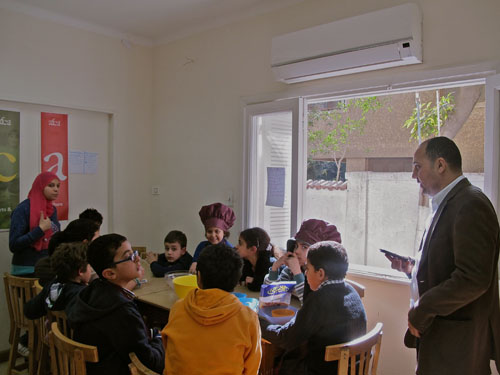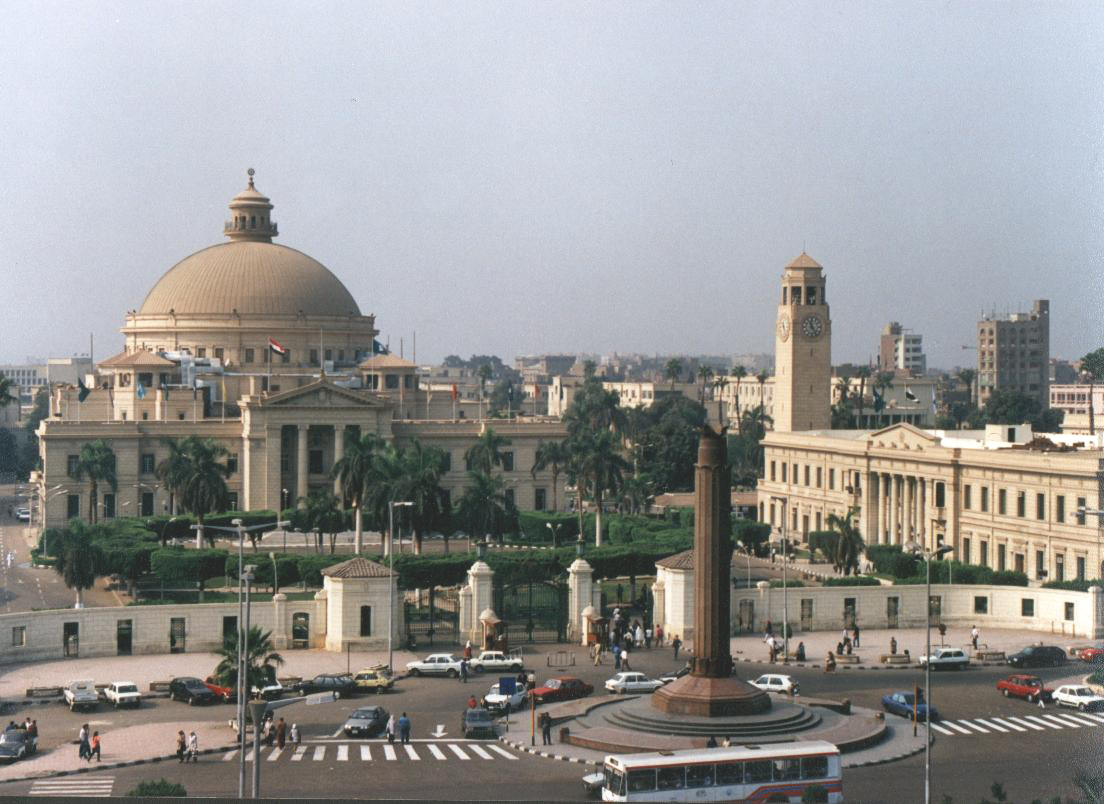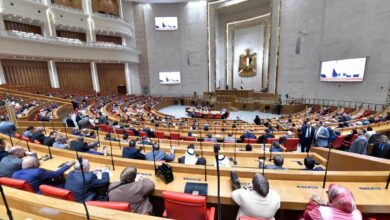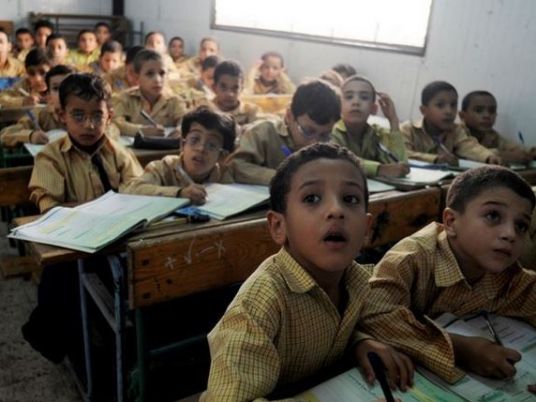
For many people in Egypt, art is considered a luxury — a hobby for rich folk rather than an advisable or respectable career path. Sadly, due to years of institutionalized negligence mixed with staggering poverty, the role of art in society has witnessed an abysmal decline over the past several decades.
But for Mohamed El Ghawy, the founder of the AFCA Foundation for Arts and Culture, art is much more than a viable vocation. It is a form of social justice and a crucial element in the healthy development of children.
AFCA is an independent organization founded in 2004 with the mission of educating children and youth through art and culture. Its team considers art education a necessity and a critical component of every child’s educational process.
“Every child has the right to art and the right to play,” says Ghawy, gesturing toward the adjoining room, where close to 20 kids are gathered for AFCA’s after-school art education program. “And with the political situation in Egypt, it is of the utmost importance to focus on the development of our future generations.”
The process of learning
Ghawy says there are three types of learning styles that AFCA works with: the audio learner, visual learner and kinesthetic learner. The latter learn through carrying out a physical activity.
“The programs we propose are designed to enhance the use of languages (Arabic, English and French), while also encouraging every child’s creativity or natural artistry to develop personal skills,” says Ghawy, “One of our main goals is to increase the role of youth in society while promoting freedom of speech and expression through various art and culture projects.”
Since 2004, AFCA and its dedicated team have created an action plan revolving around two main components: education through arts programs and a yearly multidisciplinary cultural program.
Through its network of teaching artists and cultural facilitators, AFCA offers a variety of formulas within their art education and language-building programs, including workshops in theater, visual arts, singing and cooking.
Typically they work with children from ages 4–12. These programs are usually run through yearly art clubs during school vacations and after-school programs.
AFCA also works intensively with both private schools and public schools, in addition to NGOs, where it creates art programs and workshops for underprivileged children.
During his many years working as an educator at a range of international schools within Egypt, Ghawy says he discovered time and again the lack of progressive institutionalized art education within the curriculum. This realization prompted him to open an institute that emphasized further education programs through art.
“One of the main problems with our school system in Egypt, or even society at large, is the way children are perceived,” explains Ghawy.
“Our society thinks that a child’s only needs are to go to school and to eat. They forget a crucial element, which is to set up the child’s mind, to open up their brain, to teach them how to accept others, and how to be open enough to be expressive — you cannot wait until the kid is 20 to teach them these lessons.”
He goes on to say that in Egypt, children learn simply by memorizing and regurgitating information during exams. They are taught what to think, rather than how to think.
The importance of language
One of the most interesting things about AFCA is not what it teaches, but how it teaches — essentially, everything is taught through various mediums of art. The organization attempts to build upon what the children are already learning in school. It teaches language through theater, science and anatomy through dance, hygiene through cooking, and geometry through origami.
For Ulrike von Rucker, AFCA’s learning coordinator, language and expression are vital elements in the development of children.
“We have to start with the little ones. We have to teach them how to exist together and with others in their community. It is very important that children learn to understand the effects of their activities and how their decisions affect others. If they learn how to express themselves at a young age then they simply develop better,” says von Rucker.
Ghawy adds, “Our education systems here raise children to avoid discussing differences. We just see things as ‘us’ and ‘them.’ We do not make the effort to discuss, and instead we become threatened by one another. You can see the result of this in our current political situation now and the degree it has become polarized.”
Playing is the work of children
Both Ghawy and von Rucker also emphasize the importance of the parent’s role in a child’s education process. They mention that, in many cases, they have found a great deal of problems with the ideologies of the parents.
“The parents do not respect what their children want,” says von Rucker. “There is a famous quote that says, ‘Playing is the work of children,’ but here, the parents see playtime as something you do only after spending days and nights studying. It is the same way they view art: as a luxury, rather than an essential part of development.”
But for Ghawy and von Rucker, it is not all about complaining. On the contrary, what AFCA does is directly address these issues by providing accessible programs for all children.
This can also be seen in its annual Hakawy International Arts Festival, which caters to children from all socioeconomic classes. In fact, the organization often provides hundreds of public-school children with both transportation and food at the event.
“The multidisciplinary festival is an occasion to celebrate youth and promote the importance of arts and culture for young generations,” says Ghawy. “The event serves to empower and celebrate children, while giving them a means to participate in the process of building Egyptian society.”
This year’s festival will take place in March, and will work to emphasize the theme of musicality and rhythmic development.
Alongside the Hakawy festival, AFCA also works to produce shows for children’s theater. Having studied drama and theater at Cairo University, Ghawy both directs and performs storytelling shows for children at the AFCA studio in Heliopolis every Saturday and Sunday.
AFCA is currently running two shows: “Hassan the Brave,” which is inspired by “One Thousand and One Nights,” in addition to “Memed and the 40 Liars.”
Ghawy often brings in other well-known artists to participate in the show; most recently, he had musician Dina El Wedidi working alongside him.
Ghawy and von Rucker say art education is a way to counteract the shortcomings of the education system in Egypt. They believe that art needs to be recognized as a valuable part of education to build on a child’s communication and soft skills.
Since opening in 2004, about 2,800 children have enrolled in AFCA’s programs, while the yearly Hakawy festival sees an average of up to 5,000 people.
The organization has also successfully implemented various art education programs and workshops in local public schools. And despite the many challenges it faces, AFCA continues to push forward.
“If art and expression are not taught to children, or if there is no time and space given for the acquisition of basic core competencies, then children do not have the tools needed to be contributing members of society. And that is when everything breaks down, which is exactly what we are seeing in Egypt at the moment. In the end, this is precisely what we are working to change,” says von Rucker.
This piece was originally published in Egypt Independent's weekly print edition.




